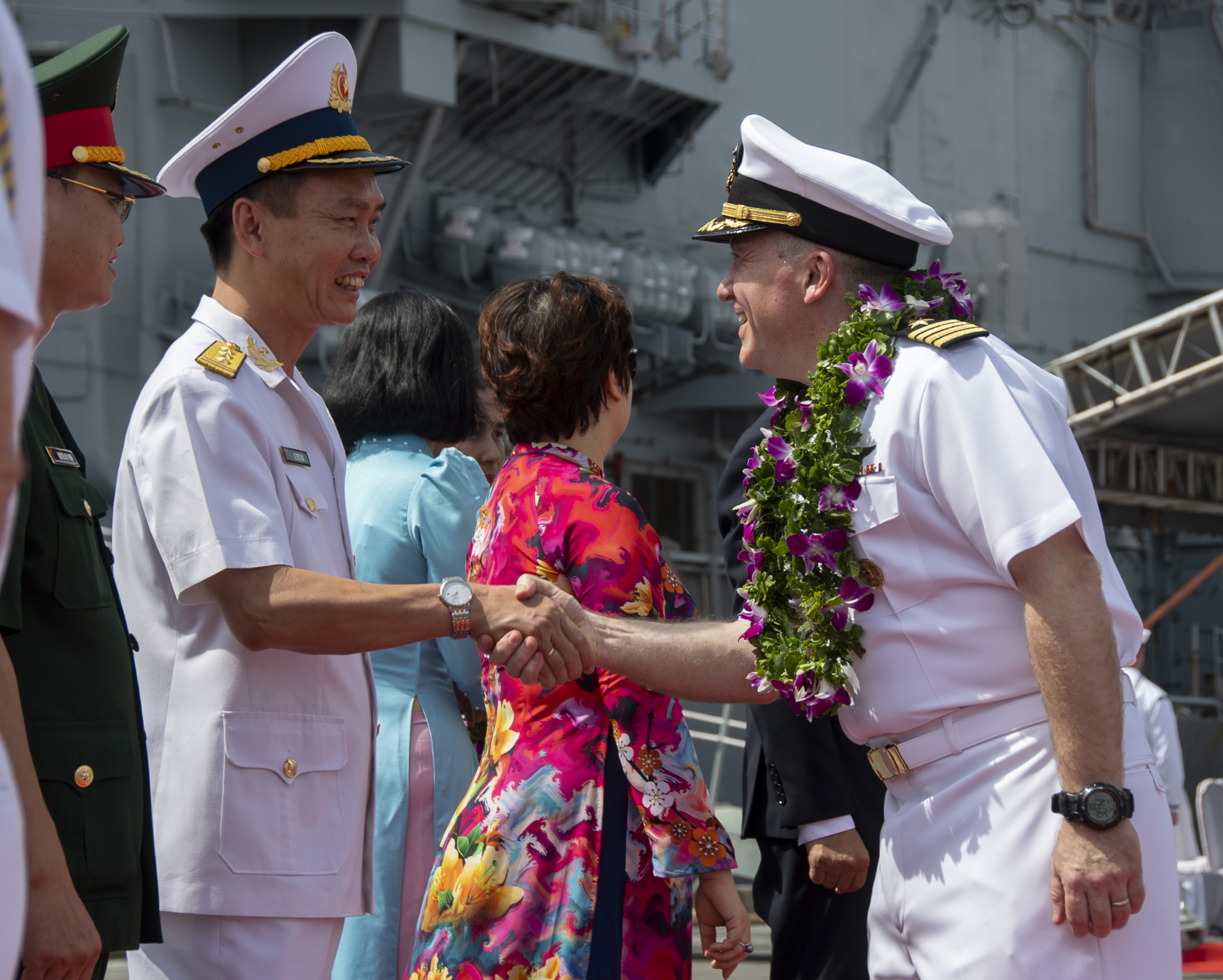
Vietnam’s “bamboo diplomacy” has allowed Hanoi to carefully enter strategic partnerships with the U.S. and China while maintaining its own independence and security, its foreign minister said Tuesday at a Brookings Institution event.
Bui Thanh Son said, “bamboo has been associated with Vietnam long, long, long ago,” adding that the Vietnamese “use bamboo to defend our country, use bamboo to develop our country.”
Vietnam in the 20th century was engaged in a prolonged war with the United States and, in the late 1970s, a border war with China. Several times during his presentation and in answering questions, Son referred to “the hard-won peace” that Vietnam has since found and its economic growth.
Using the bamboo analogy, Son said its stems “must be sturdy” and in diplomacy “uphold the principles of international law, particularly the U.N. Charter,” a reference to territorial sovereignty. He acknowledged the tensions over territorial claims, particularly with China, in the South China Sea.
Bamboos branches must be flexible, he added. In terms of diplomacy that translates into “respecting our partners and refining our policies toward that partner,” be it Washington or Beijing.
“Vietnam is now … in position to stabilize relations between the United States and China,” possibly starting with climate change. Son said the Mekong River Delta is one of the regions most affected by rising sea levels and climate change, so Vietnam understands the stakes in fostering cooperation globally on these matters.
Son said, “Competition among major powers is natural and we can manage that.” He noted Vietnam has also entered into similar comprehensive strategic partnerships with Japan and most recently Australia. “We want to be a reliable member of the international community.”
For the United States and Vietnam, “it has been a long journey” from war “to becoming friends,” from the normalization of relations in 1995 to last year’s agreement. The start was “the humanitarian gestures” such as assisting the United States in searching for service members missing in action.
The idea behind the partnership signed by the two nations is to pave the way for “further cooperation in multiple aspects, including boosting technology transfer for Vietnam, fostering investment and trade, expanding people-to-people connections and combating climate change.”
On the technology side, Son saw “building up an ecosystem” for a Vietnamese semiconductor industry, maturing artificial intelligence for development and digital transfer to bolster the economies of both nations as outgrowths of partnership. He added Vietnam can play a key role in providing supply chain resilience that was sorely tested during the early months of the COVID-19 pandemic.
He mentioned Vietnam holds “critical minerals” necessary to manufacture high-technology products from smartphones to electric vehicles and advanced manufacturing. China has been the international leader in mining these minerals.
The U.S.-Vietnamese ties “are now a model of international relations.”
The future depends on strengthening trust “and respecting each other’s political system.” Vietnam remains a collectively-run Communist nation.
When asked about the impact of the resignation of President Vo Van Thuong in an anticorruption drive, Son said Vietnam “is trying to make the most favorable conditions for [foreign] businesses to operate.” He said by having a collective leadership “one or two resignations” doesn’t change the Party Congress’ commitment to domestic and international growth.
Thuong was only in his first year of what was expected to be a five-year term.
Son said trade between the United States and Vietnam has increased 24 fold over the past 30 years to $110 billion annually.
In his meetings with Secretary of State Antony Blinken and National Security Advisor Jake Sullivan, Son said they candidly discuss issues of “mutual trust, understanding.” He also wanted active involvement by Washington in the Association of South East Asian Nations [ASEAN] and Asia-Pacific Economic Cooperation [APEC] group.





